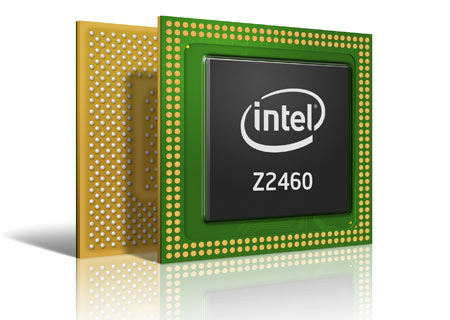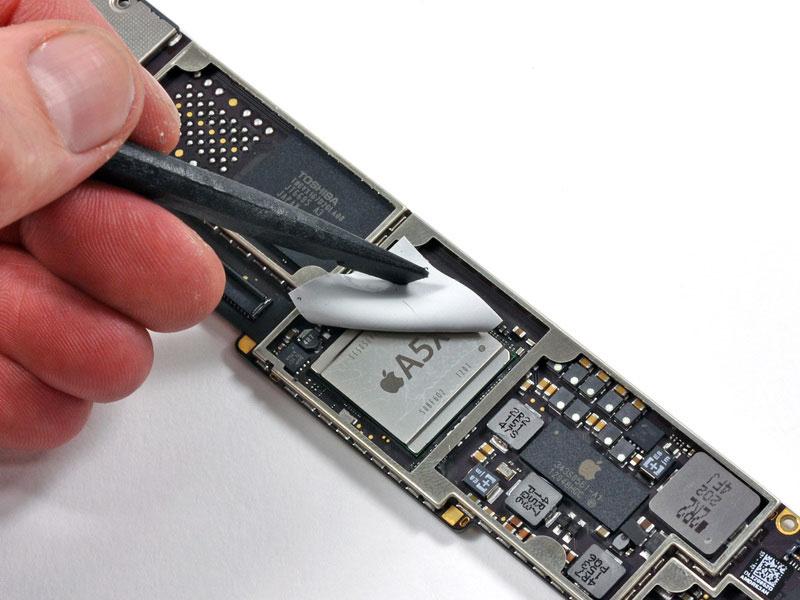Intel looks to build ultra-efficient mobile chips Apple 'can't ignore'
During Intel's annual investor day on Thursday, CEO Paul Otellini outlined the company's plan to leverage its multi-billion-dollar chip fabrication plants, thousands of developers and industry sway to catch up in the lucrative mobile device sector, reports Forbes.
“Our job is to ensure our silicon is so compelling, in terms of running the Mac better or being a better iPad device, that as they make those decisions they can’t ignore us,†Otellini said.
Mobile devices like Apple's market-leading iPad are quickly devouring the PC market, which saw a nearly 6 percent drop in worldwide shipments in the fourth quarter of 2011. Apple Chief Executive Tim Cook said in January that he expects the tablet market to one day outnumber PCs, and it seems that Intel tends to agree given its realigned efforts.
Currently, Apple relies on Intel processors to power its Mac line of computers following a switch away from IBM's PowerPC platform in 2005. For its iDevice products, which far outsell Macs, the Cupertino-based tech monolith uses proprietary ARM-based chips fabricated by Samsung.
Intel has been noticeably absent from the mobile processor space, though the recent acquisition of wireless chip maker Infineon could give the Santa Clara-based company a leg-up in offering integrated mobile platform solutions. Since the purchase, Intel has shipped 500 million wireless chipsets. Also of note are the thousands of programmers employed by Intel who can help tune mobile device software to run efficiently on x86 processors. It was this army of software engineers that helped Apple abandon PowerPC.
Intel's Atom "Medfield" chipset is bound for use Motorola and Lenovo smartphones.
Intel reportedly inked agreements to supply Motorola and Lenovo with Atom "Medfield" processors for use in upcoming products, and more OEMs are supposedly in line to implement the new chipsets. According to Co-Manager of Intel's Mobile Communications Group Mike Bell, the new manufacturing process used to build the chips is superior to offerings from the competition.
“What the process technology does is gives us better performance, at better power at better size,†Bell said. “We think this is a fundamental advantage that we have.â€
While Apple's newest A5 and A5X processor family is built on the 32nm and 45nm processes, respectively, Intel is developing a more efficient 22nm component slated for release in 2013. The firm expects to be building parts using a 14nm process by 2014.
Not surprisingly, Intel was said to have been interested in producing Apple's A-series silicon last year in an attempt to marginalize Samsung's share of the fabrication business.
The two companies remain strange bedfellows as the chip maker provides parts for Mac computers while pushing its own competing Ultrabook thin-and-light platform. An upcoming MacBook refresh is expected to feature Intel's "Ivy Bridge" chipset with new processors entering the Core i5 and Core i7 families. Rumors circulated earlier this year that said Apple was looking to use its own ARM processors in upcoming iterations of the MacBook, especially in power-critical applications like the thin-and-light MacBook Air, but those whispered promises have yet to materialize.
It remains to be seen what effects Intel's renewed efforts in mobile will yield, though it is unlikely that Apple will turn away from its own mobile chip-making business which by some estimates could become the world's largest by the end of 2012.
 Mikey Campbell
Mikey Campbell















 Amber Neely
Amber Neely
 Thomas Sibilly
Thomas Sibilly
 AppleInsider Staff
AppleInsider Staff
 William Gallagher
William Gallagher
 Malcolm Owen
Malcolm Owen
 Christine McKee
Christine McKee










100 Comments
Well, Apple can ignore it for a few years at least, then we'll see what happens. That said, this could be a very costly mistake for Intel if they can't compete effectively with ARM by 2015. This is like steering a big ship 180 degrees, so if Intel pulls it off by 2015 and is clobbering ARM it will be one of the biggest tech successes of the early part of this century.
It could have been better for Intel to fab ARM chips because Intel's fabs are kickass, mobile designs less so. So Intel could have started fabbing ARM then gradually build up its mobile expertise too, once they have a better grasp of the mobile space.
It could be a case of "Not Invented Here" for Intel as well as Intel worried all along about cannibalising the already-eclipsed PC processor market.
We have got to the stage where PCs are so powerful but so ghastly to use, let's face it. 2012 is indeed the turning point in our modern era.
Apple and Intel remain strange bedfellows as the chip maker provides parts for Mac computers while pushing its own competing Ultrabook thin-and-light platform. An upcoming MacBook refresh is expected to feature Inte's "Ivy Bridge" chipset with new processors entering the Core i5 and Core i7 families. Interestingly, Intel was said to have been interested in producing Apple's A-series silicon in an attempt to marginalize Samsung's share of the fabrication business. It remains to be seen what effects Intel's efforts will yield, though it is unlikely that Apple will turn away from its own mobile chip-making business which a recent study found to be capable of becoming a world leader by the end of 2012.
Tim Cook made a compelling case that Mac is Mac and iOS is iOS, he doesn't see a convergence too soon, so Intel for MacBook Air and Macs have a good few years still. That said, it doesn't mean by 2015 a Mac that's a Mac and not iOS can't be running a fast ARM processor. So, again, 2012-2015 is critical for Intel. Either it can capitalise on mobile and post-PC processors or become another lumbering behemoth like Microsoft (though Intel arguably makes the most superb PC-class CPUs, and has decimated the discrete-GPU industry by brute force and unethical practices (eg. locking out Nvidia)).
Apple may well set up its own fabs the way it is going. It's costly, of course, but possible. Designing killer chips is one thing. Fabbing them at less than 10nm is another whole bag of cats.
In Xcode, when developing an iOS App and you run it in the simulator, it is actually compiled in to an Intel binary (that is why it's only a simulator not an emulator). This is for performance reasons of course, but one side-effect is that all iOS apps are basically already tested on Intel. They would still have to be recompiled and re-uploaded to the App Store of course, but shouldn't need any source changes should an x86 iDevice come along.
@Nvidia2008
If you read the review on Anandtech, regarding Intel's latest Medfield mobile SOC, it performed very well in terms of CPU performance, battery life and camera performance. The only area where it lagged was GPU and that's only because Medfield is single-core design. Later this year, Intel is releasing a dual-core CPU / GPU variant of Medfield plus the fact they will be fabbing 22nm mobile SOC's next year and 14nm version in 2014, so in terms of manufacturing they're well ahead of everyone in the ARM camp. With the introduction of Medfield, Intel is finally back in the game and as long as they execute their mobile roadmap the way they have their PC roadmap, they will be a major player in the mobile device sector within two years.
@Nvidia2008
If you read the review on Anandtech, regarding Intel's latest Medfield mobile SOC, it performed very well in terms of CPU performance, battery life and camera performance. The only area where it lagged was GPU and that's only because Medfield is single-core design. Later this year, Intel is releasing a dual-core CPU / GPU variant of Medfield plus the fact they will be fabbing 22nm mobile SOC's next year and 14nm version in 2014, so in terms of manufacturing they're well ahead of everyone in the ARM camp. With the introduction of Medfield, Intel is finally back in the game and as long as they execute their mobile roadmap the way they have their PC roadmap, they will be a major player in the mobile device sector within two years.